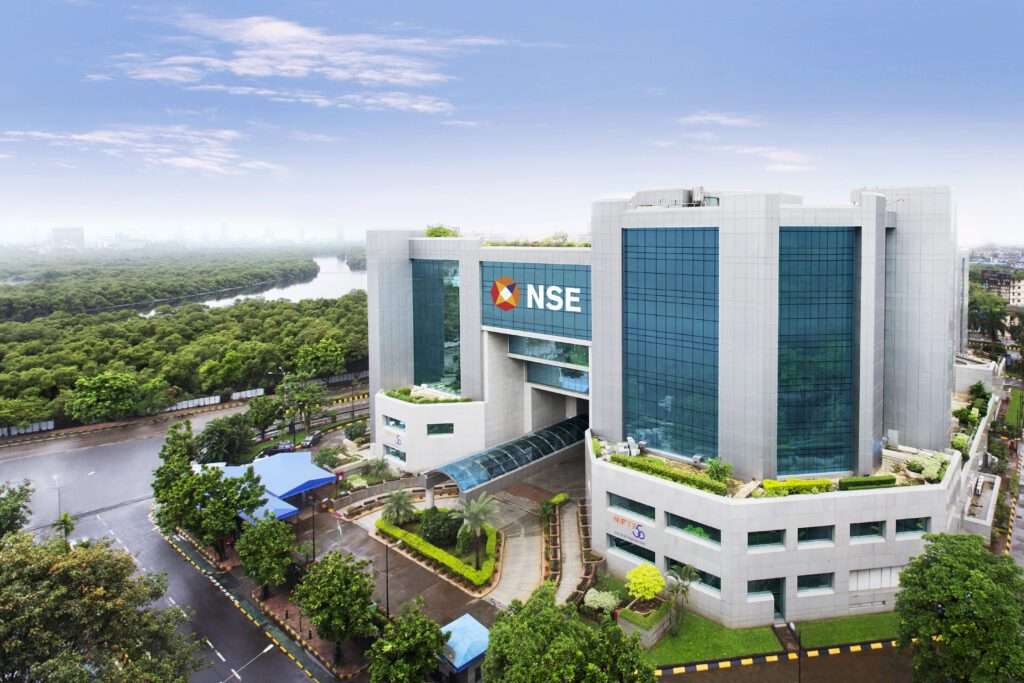The National Stock Exchange (NSE) of India stands tall as a crucial institution in the country’s financial framework, playing a pivotal role in fostering economic growth, channelling investments, and providing a platform for companies to raise capital. Established in 1992, the NSE has grown to become one of the largest and most advanced stock exchanges globally, embodying India’s economic aspirations and serving as a barometer for the nation’s financial health.
Image: NSE Headquarters
Founding and Evolution
The genesis of the NSE can be traced back to the early 1990s when the Indian government initiated economic reforms to liberalize and modernize the financial sector. The need for a more efficient and transparent stock exchange was recognized, leading to the establishment of the NSE in 1992. With the introduction of electronic trading, the NSE revolutionized the Indian stock market, replacing the traditional open outcry system with a state-of-the-art electronic trading platform.
Key Objectives
The NSE was founded with several key objectives aimed at transforming the Indian capital market landscape. These objectives include:
Technology-Driven Trading: The NSE introduced electronic trading, pioneering a shift from the conventional open outcry system. This technological leap significantly enhanced efficiency, transparency, and accessibility, making stock trading more inclusive.
Market Integrity and Investor Protection: The NSE focused on creating a fair and transparent marketplace, implementing robust regulatory mechanisms to ensure market integrity and safeguarding the interests of investors. Stringent regulations and surveillance systems were put in place to detect and prevent market abuses.
Wider Market Participation: The NSE aimed to encourage broader market participation by introducing innovative financial instruments and products. This not only attracted domestic investors but also garnered attention from international players, contributing to the globalization of India’s financial markets.
Market Segments and Products
The NSE facilitates trading across various market segments, catering to diverse financial instruments. The primary market segments include:
Equity Markets: The NSE is a major platform for trading in equities, providing a venue for companies to list and raise capital. With a vast array of listed stocks, it offers investors opportunities to participate in the growth of a diverse range of industries.
Derivatives Market: The NSE is renowned for its derivatives market, offering a wide range of financial instruments such as futures and options. This market provides investors with risk management tools and opportunities for speculation.
Debt Market: The NSE operates a platform for trading in debt instruments, including government securities, corporate bonds, and other fixed-income securities. This facilitates capital raising for both government and corporate entities.
Currency Derivatives: In line with the globalization of financial markets, the NSE introduced currency derivatives, allowing investors to trade in currency futures and options.
Regulatory Framework
The regulatory framework of the NSE is governed by the Securities and Exchange Board of India (SEBI), the apex regulatory body for the securities market in India. SEBI ensures compliance with regulations, monitors market activities, and promotes investor protection. The NSE collaborates with SEBI to establish and enforce market rules, fostering a fair and transparent trading environment.
Technology and Innovation
The NSE has been at the forefront of adopting cutting-edge technology to enhance the efficiency and reliability of its trading platform. Continuous technology upgrades, risk management systems, and real-time surveillance contribute to the exchange’s reputation for stability and integrity. The introduction of algorithmic trading, co-location facilities, and high-frequency trading has further propelled the NSE into the league of technologically advanced stock exchanges globally.
Global Impact
Over the years, the NSE has not only transformed the Indian financial landscape but has also gained international recognition. Its robust regulatory framework, technological prowess, and diverse product offerings have attracted foreign investors and positioned India as an emerging market for global capital. The NSE’s indices, such as the Nifty 50, are widely tracked by investors worldwide, providing a snapshot of the Indian equity market’s performance.
Challenges and Future Outlook
Despite its successes, the NSE faces challenges, including market volatility, regulatory complexities, and the need for constant innovation to keep pace with global financial markets. The exchange continues to adapt to changing market dynamics, exploring new avenues such as sustainable finance, green bonds, and fintech collaborations to stay relevant and resilient.
Conclusion
The National Stock Exchange of India stands as a testament to the country’s commitment to fostering a dynamic and inclusive financial ecosystem. From its inception, the NSE has played a pivotal role in shaping India’s capital markets, driving economic growth, and attracting both domestic and international investors. As it continues to evolve and embrace technological advancements, the NSE remains a cornerstone of India’s financial architecture, contributing significantly to the nation’s economic development and global standing.













